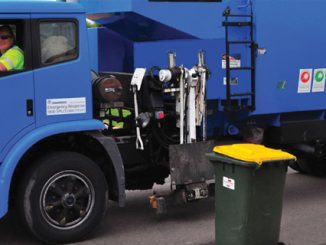Sustainable parenting: put simply, it’s about making mindful choices that suit your situation, reduce your impact on the environment and help your family lead a much healthier lifestyle.
Think that sounds difficult and expensive? It’s not! Here are my top three tips to help your family take their first steps to a more sustainable life…
1. Go reusable
In Australia, we throw out over TWO BILLION disposable nappies every year.
Nappies are an essential. Your brand new little baby is going to go through around 500 nappies in just their first six weeks! By the time they reach their third birthday, nearly 7000 nappies will have been on their bottom, emptying your wallet of around $2500. Add that to the cost of disposable baby wipes and you’ll have spent over $3000 and contributed around two tonnes of waste to landfill.
But you do have a choice. The alternative is a set of 20 reusable nappies and a dozen reusable wipes. Depending on the brand you choose, the average cost for a set would be around $630.
What about the washing, you ask? Isn’t that going to ruin any eco-cred you might have accumulated by choosing reusable? Not at all. Studies show that disposable nappies create over twice the amount of water waste, so each time you pop a load of washing on, you can be confident in the knowledge that you’re saving money and reducing your impact on the environment.
2. Reduce chemical usage
Your baby’s skin is so sensitive so you don’t really want to be loading them up with unnecessary chemicals. Everyday items such as baby bath washes, laundry liquid, disposable baby wipes, sunscreens and moisturisers can all contain parabens, phthalates and petrochemicals, so read the labels, and choose plant-based alternatives. In some cases, you may pay a small amount more but your baby and your family’s health is worth it.
3. Choose natural fibres
Bamboo and organic cotton are better choices to make when deciding on what to put against your baby’s skin. Bamboo is a natural insulator and will keep your baby around two degrees cooler in summer and warmer in winter. It’s also great for children suffering from skin conditions such as eczema and takes around a third less water to produce than cotton. Like organic cotton, nasty chemicals are not used in the growing process of bamboo, resulting in a more natural product. It is much easier to find natural fibres in stores these days, and the cost difference is not significant.
So have I convinced you to rethink some of your choices yet? Hopefully next time you’re choosing something for your baby, you’ll remember to look at the label and think about the ingredients and how an item was made before making your final decision.
Words: Salena Knight from Flower Child –
321 Glebe Point Rd, Glebe. www.flowerchild.com.au.


Leave a Reply
You must be logged in to post a comment.